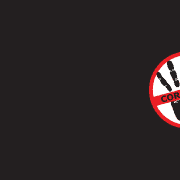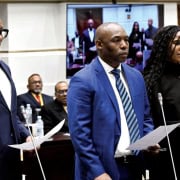|
Getting your Trinity Audio player ready...
|
South Africans who wish to stay abreast of developments in the implementation of the state capture commission’s recommendations can now do so with the Zondo Recommendations Tracker, a tool that was launched on Tuesday by civil society organisation (CSO) Open Secrets.
CSOs working under the banner of the Civil Society Working Group on State Capture – a coalition that was formed soon after the commission started with its public hearings six years ago – have been making contributions to the tool over time. Letlhogonolo Letshele of Open Secrets took participants in the launch webinar through the different features of the tracker, highlighting that it is important for CSOs and the public in general to keep watch over the different state institutions tasked with various implementations.
“Civil society and activists can use the tracker to inform their advocacy, to know which sort of recommendations to push for, to know what’s been happening. Also, most importantly, whistle-blowers can also keep up to date with how recommendations have been implemented and to see the kind of information they gain,” Letshele said.
Her colleague, investigator Zen Mathe, likened the work by CSOs in creating the tracker to “cutting the state capture recommendations pie” in order to focus on thematic areas that they specialise in.
Former Chief Justice Raymond Zondo, who chaired the commission from 2018 to 2022, made around 350 recommendations in his final report, released in June of the latter year. These range from criminal investigations into the conduct of implicated individuals, to reforms in public institutions that were found to have been weakened through capture, and legislative reform across a variety of topics, among others.
Slow progress on implementation
The period following the commission has seen some successes and some failures in the implementation process.
In November last year, the presidency released a progress report on the implementation of recommendations that President Cyril Ramaphosa had committed to in October 2022, some four months after the final report of the commission was released. The report recorded progress in some areas in which government institutions were responsible for carrying out the implementations, but a lot of recommendations were still in progress.
There has been criticism of law enforcement agencies charged with overseeing criminal investigations and prosecutions of high profile individuals implicated in state capture – and understandably so, given that the findings related to these cases were largely damming and perceived as an opportunity for accountability from the politically elite.
Several cases that had been enrolled under the watch of the National Prosecuting Authority (NPA) have, however, collapsed due to insufficient evidence and planning, among other reasons. Just recently, the case against former sports, arts and culture minister Zizi Kodwa – implicated in corruption involving IT company EOH, from which he allegedly received kickbacks in return for his influence in tenders the company vied for – was withdrawn in the Palm Ridge Magistrates Court after his legal team made representations indicating that corruption could not be proven.
Similarly, the fraud case against Nulane Investments that the NPA had built against two of the Gupta brothers heavily implicated in Zondo’s report was also dismissed in 2023.
Public confidence in LEAs waning
Public confidence in law enforcement institutions like the NPA, said Corruption Watch’s Motlatsi Komote, who was on the event’s panel, had waned because of these and other failures. She added that support and advocacy efforts from civil society in relation to the weaknesses of law enforcement institutions was key, as this meant that we could see more boxes being ticked off in the implementation process.
Komote said the act of holding leaders and institutions accountable is imperative to ensuring that state capture does not continue. She also reflected on the commission, calling it an opportunity for South Africa to re-establish strong values and principles of good governance in both the public and private sectors, to help reduce corruption.
The tracker itself is available online, and users can navigate its various features by making specific searches for individuals facing either criminal charges or other punitive processes, as well as progress updates in the other reforms mentioned above. Letshele urged activists in the social justice sector to familiarise themselves with the tool and use it in their advocacy work, especially where they see lack of progress.








